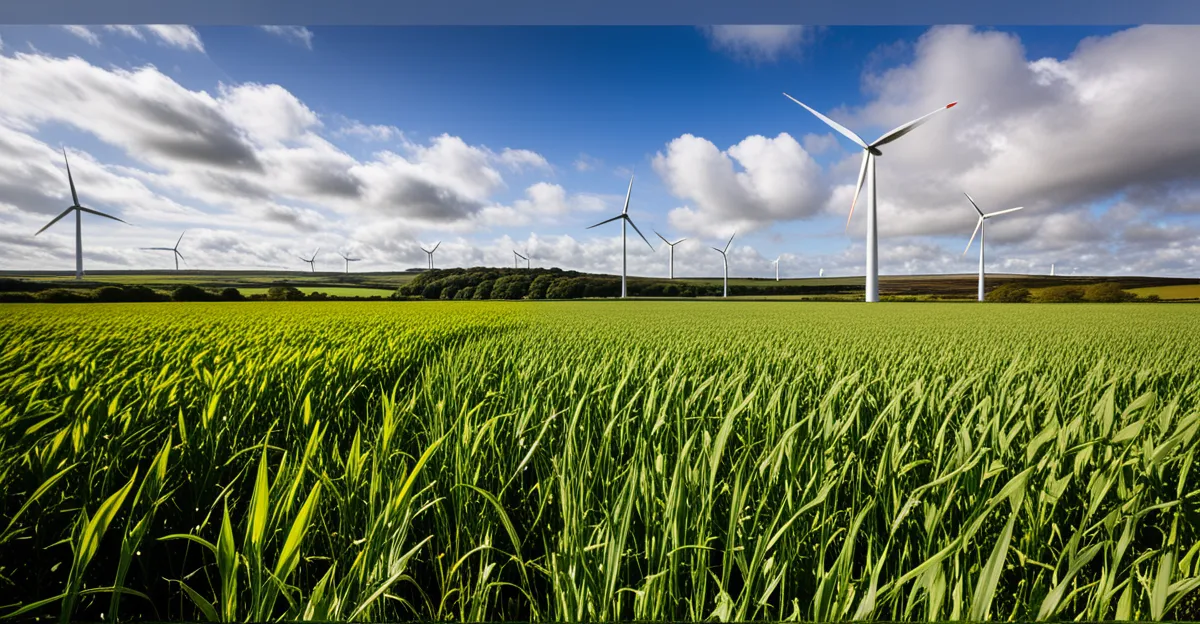Overview of UK Tech’s Role in the Green Energy Transition
The UK technology sector plays a pivotal role in advancing the nation’s green energy ambitions. Currently, many UK tech companies are actively involved in developing clean energy solutions that address climate change while promoting sustainability. This engagement is not just about environmental responsibility; it also represents a strategic business opportunity as the global demand for green energy grows.
The green energy transition opportunities for UK tech firms are diverse, ranging from renewable energy infrastructure to digital tools that optimize energy use. These companies contribute through innovations in software, hardware, and systems integration that enable more efficient and scalable clean energy deployment.
Topic to read : How Does Technology Shape the UK’s Future?
Key drivers motivating the tech sector’s involvement include regulatory pressures, investor interest in sustainable ventures, and consumer demand for environmentally friendly products. Moreover, UK tech enterprises recognize that leading in green energy aligns with national policy goals, securing advantages in both domestic and international markets. This combination of factors fuels a dynamic environment where technology and clean energy intersect, offering substantial potential for growth and impact.
Innovations and Technologies Shaping Green Energy
The clean technology innovations UK sector is at the forefront of transforming how energy systems operate across the country. A key focus has been the development and deployment of smart grids UK, which integrate advanced digital communication and control technologies to optimize electricity distribution. These smart grids enhance efficiency by balancing supply and demand in real time, reducing energy waste, and enabling better integration of renewable sources like wind and solar power.
Also to read : What Are the Ethical Considerations in the Rise of AI in UK Technology?
In parallel, energy storage UK solutions are critical to overcoming the intermittent nature of renewables. UK technology firms have made significant breakthroughs in battery performance and alternative storage methods such as compressed air and thermal storage. These innovations ensure surplus energy can be stored during peak production periods, then released when demand rises, stabilizing the grid and supporting continuous green energy supply.
Emerging trends extend beyond infrastructure improvements. Innovations include digital platforms for energy management, AI-driven predictive analytics for demand forecasting, and decentralized energy systems empowering consumers to generate and trade their own clean energy. Collectively, these technologies not only advance the UK’s clean technology innovations but also create scalable models for global green energy transitions.
Investment Trends and Business Opportunities
The green energy investment UK landscape has witnessed notable growth, driven by increasing awareness of climate imperatives and the economic potential of sustainable technologies. Investment flows have surged, with venture capital and private equity actively targeting innovations within the UK green energy market growth. This influx of capital supports both established companies and emerging startups that specialize in clean energy technologies.
Tech startup opportunities green energy are particularly vibrant in areas such as renewable energy software, energy storage innovations, and smart grid solutions. These sectors display high growth potential due to the rising demand for scalable, efficient technologies that reduce carbon footprints. UK startups benefit from a robust ecosystem that encourages innovation through accelerator programs and dedicated funding streams, which facilitate their growth within the competitive landscape.
Corporate partnerships form an essential part of the investment dynamic. Collaborations between large energy firms and technology companies enable the pooling of resources and expertise, accelerating the development and commercialization of green energy solutions. These partnerships also help to reduce risks associated with market entry and technology adoption, ensuring a more sustainable trajectory for new ventures.
In summary, the green energy investment UK environment offers promising avenues for startups and established companies alike, with strategic focus areas aligned to address both environmental challenges and business growth. These trends underscore the sector’s expanding significance within the broader UK economy and its potential for substantial impact on the global clean energy transition.
Government Initiatives and Policy Support
Government action plays a crucial role in shaping the landscape for UK technology and clean energy developments. The UK government green energy policy emphasizes ambitious targets for carbon reduction and renewable energy adoption, setting a foundation for sustained innovation within the tech sector. These policies include mandates for increased clean energy use and frameworks that encourage private sector participation.
Public funding green technology is a significant driver, with numerous grants and subsidies available to technology companies focused on the green energy transition. These green energy incentives UK programs lower financial barriers for innovation and commercialization, supporting activities from research and development to pilot deployment. This funding stimulates investment confidence, enabling startups and established firms to accelerate product development and market entry.
Regulatory frameworks also influence strategic decisions in the UK tech sector green energy space. Clear guidelines for emissions, energy efficiency standards, and grid integration create predictable environments where businesses can plan long-term. Looking ahead, evolving policies are expected to enhance support for emerging technologies such as hydrogen production and carbon capture, presenting fresh green energy transition opportunities. This alignment between policy and technology underpins the UK’s position as a leader in global clean energy efforts.









